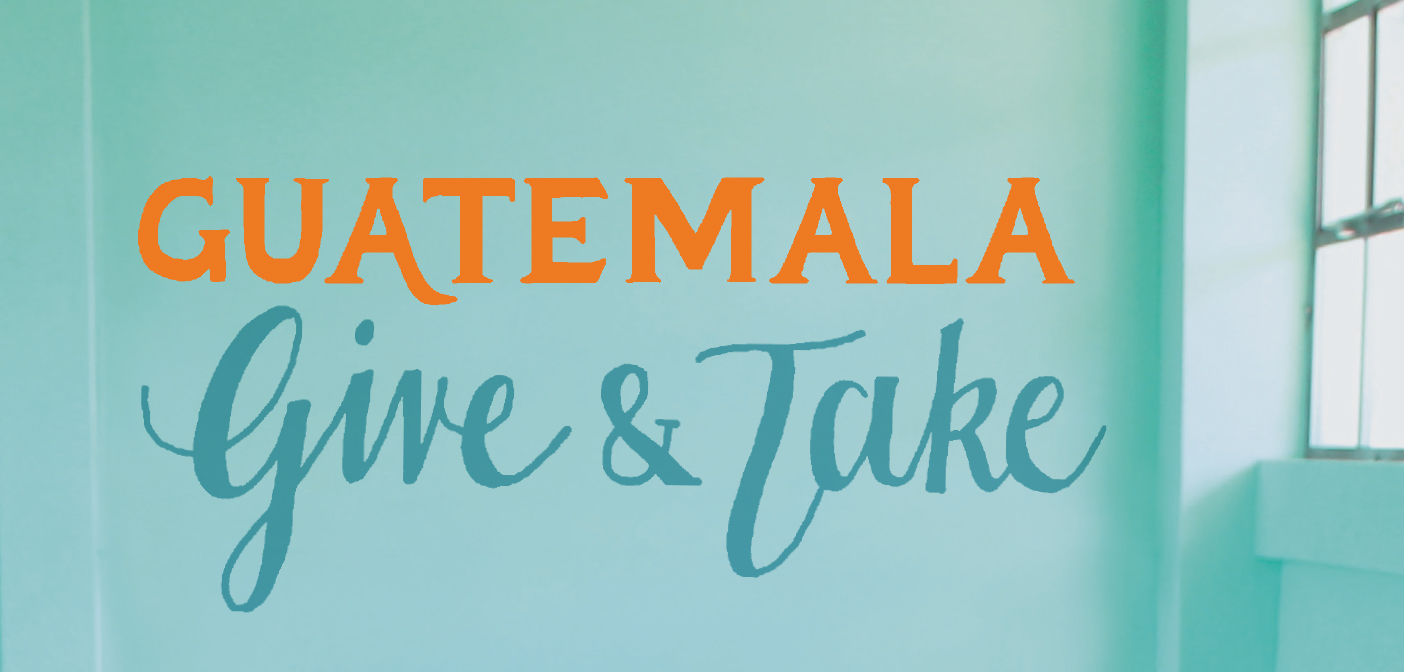By Steve St. Angelo | Photos by Stephanie Olmanni
Land of great beauty and need finds way into nurses’ hearts
Ron Noecker, RN, sits down to a coffee looking for all the world as though he just stepped off a beach and into his scrubs, his tousled blond hair and easy smile betraying nothing of the stresses attendant with being a radiation oncology nurse at The Johns Hopkins Hospital. And why not? He’s stolen a few moments to let his mind drift to a place he loves just as much: Guatemala.
Noecker is fresh off a mission with nine students from the Hopkins School of Nursing to care for impoverished people in and around his “home” base of San Martin Jilotepeque, Chimaltenango. Noecker leads perhaps a dozen such teams (from various schools, hospitals, and other organizations) to the Central American nation each year. The SON also frequently sends student cohorts to Haiti and St. Croix.
Stephanie Olmanni, Accel. ’15, was part of that cohort giving up a break in the school year to work in Guatemalan clinics and, yes, sight-see, her camera capturing moments of beauty and fun fit for turistas. (“Nights in Antigua were lively with people partying, dogs barking, and nature springing into action,” says classmate Dawn Bellinger, who meanwhile was scaring herself silly. “Volcano Fuego kept rumbling while I was trying to catch up on The Walking Dead. Not a good combination.”) But Olmanni and her cohort-mates say the truer picture of the trip was in and through the eyes of the villagers around Antigua.
“It was, like, this is why we do nursing,” Olmanni says of a chance to impact the lives of underserved populations.Added Bellinger, “Guatemala helped me to see that healthcare can be delivered in a variety of settings and that it just takes some patience and a little creativity on the nurse’s part. I enjoyed that aspect of challenging myself.” And then there was that one little girl who stole Bellinger’s heart while “tolerating my limited Spanish”: “So cute. … It was nice to be able to practice without any judgments or prejudice and she was very excited, cooperative, and thankful.”
Noecker understands the feeling, one that keeps him coming back, and one that changed his life dramatically. “I was a Catholic priest for 18 years in Nebraska, and enjoyed that work very much,” Noecker explains. “But, you know, life happens. I was searching … I was restless.” Noecker decided on a sabbatical to Guatemala, a land of widespread poverty and inequality but joy nonetheless. “I felt a lot of healing energy and fell in love with the country, really. Happiness is infectious. I was being called to something else.” He was maybe a little too impatient to find out exactly what that something was, though.
“When I was down there, I had weaseled my way into Hermano Pedro, a hospital for people who can’t afford surgery, who don’t have the means. These teams from all over the world come there to provide the care.” He spent four months hanging around in the recovery room being helpful (assisting in transport of patients, taking vitals, etc.) “because I wanted to see what it was like. There are a lot of male nurses in Guatemala, and they’re great guys.” So Noecker fit right in, until a supervisor asked for his credentials, and his weaselship sailed.
“She kicked me out and I went to work in a bar,” he laughs. “I was also teaching English, I was teaching piano, but I knew that career wasn’t going to make it possible for me to fly home at Christmas or anything like that, and I was interested in doing the level of service that nurses can provide.”
One night, Peace Corps volunteers traveling from Nicaragua stopped into the watering hole. Talk eventually turned to post-Peace Corps and bartending plans.
For many local children, as well as adults, visits from Ron Noecker and the various cohorts are a too- rare opportunity to receive care.
Noecker casually mentioned his flirtation with nursing. They immediately suggested Johns Hopkins, a notion he’d never considered. “The next day, I went online and signed up!”
Noecker graduated in 2007 and found his way to Hopkins Hospital, but Guatemala was always in the back of his mind and on the tip of his tongue. He spoke so fondly and passionately of the country and its needs that finally, in 2010, his nurse manager in Radiation Oncology said, “Well, let’s bring a team.” Before Hopkins Hospital could say no, Noecker had weaseled a good portion of the Radiation Oncology staff into going. (“I got in trouble because I took too many of them away for a week. Oh, boy!”) But Noecker had his long-awaited epiphany. The result: Nursing Heart Inc. and the Guatemala Esperanza initiative, which provides supplies, housing, and health care to the needy there. (Esperanza means “hope” in Spanish.)
Noecker, executive director of Nursing Heart, has for five years now been able to split seasons between Hopkins Hospital and Antigua, using his precious leave to make the most of his time in both worlds. He remains astonished at the need in Guatemala, especially for health education. “Why, in this nation where the women are so strong, where they work so hard, is there all this diabetes?” He explains that local pharmacies don’t require a prescription for antibiotics. “Now you’ve got a 20-year-old and he’s resistant to all types of antibiotics.” Speaking Spanish helps, but as he tells gringo students who wonder how useful they can be, it isn’t everything. “Everyone has a beating heart. Everybody has lungs that need air. Everybody wants to be able to see; they want to be able to run. You start learning that there are things we share in common that go way beyond language.”
“Everyone has a beating heart. Everybody has lungs that need air. Everybody wants to be able to see; they want to be able to run. You start learning that there are things we share in common that go way beyond language.”
— Ron Noecker, RN Emily Johnson at a clinic.The cohort with local folks (Ron Noecker kneels at far left).Stephanie Olmanni soaks up the scenery.
Noecker is sensitive to the notion that a week or so is not much time for in-depth nursing, and he embraces the question of ethics head on: “Nursing Heart has tried to work with other [nongovernmental organizations, or NGOs], because the worry is, when you’re an organization coming in from the outside, who takes care of them when you leave? The follow-up is the biggest concern. So the type of care you give on this limited basis has to be very carefully thought through.”
While many cohorts from the SON have featured BSN classes—and in the near future Master’s Entry into Nursing students—Noecker says the trips can be even more vital for nurse practitioners-to-be: “We have no monitors, no lab work, maybe we have a blood pressure electronic monitor. Woo-hoo! The greatest thing for a nurse practitioner coming there is you have to become a practitioner. You have to see; you have to touch; you have to listen. And I’ve loved watching those students who are becoming NPs move from this person who’s always dependent on tech … all of a sudden they can find something deeper within themselves. They can put 2 and 2 together and know that they can probably practice even if the lights went out.”

